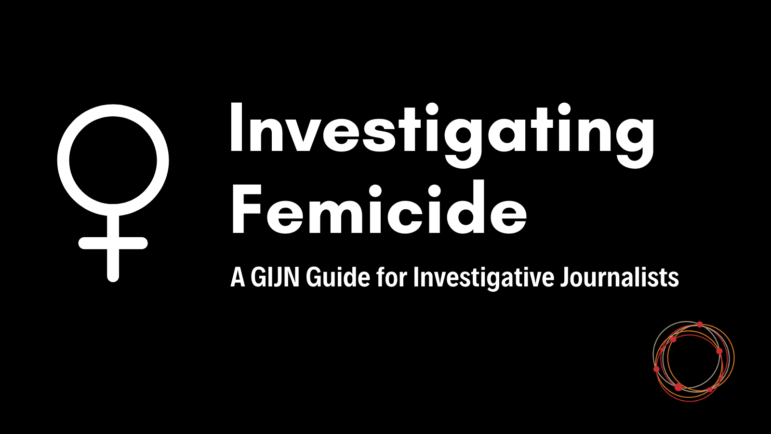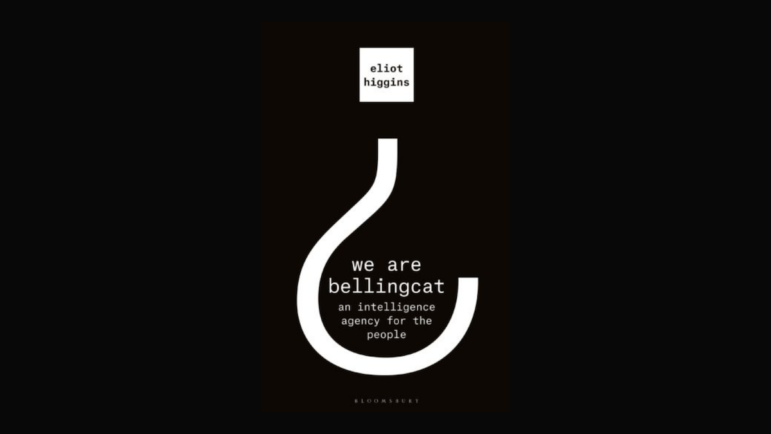

Where will your reading list take you? Image: Shutterstock
From Mexico to South Africa, Brazil to the Philippines: GIJN’s Investigative Bookshelf
Read this article in
When we asked the leading Mexican reporter Carmen Aristegui her advice for aspiring reporters, her answer was simple: “Read.” A book list that spans different genres, she said, is “a tool journalists must use to gain a better understanding of the world. It opens spaces, brings us ideas, and feeds our imagination.”
Boyoung Lim, who went from police officer to investigative reporter to manager of the Pulitzer Center’s AI Accountability Network, said throughout her career she had drawn “from books I read and movies I watched.”
In Europe, Pavla Holcová, the founder of the Czech Centre for Investigative Journalism and the Central Europe editor for the Organized Crime and Corruption Reporting Project (OCCRP), has suggested that reading is a tool to avoid burnout. “Read books or novels before going to bed,” she advises. “It keeps you from dreaming about the stories” you are working on.
Together, they make a powerful case for why investigative reporters should read, and the last few years have seen a bumper crop of investigative books, including bestsellers written by leading watchdog reporters.
Our list, made up of titles published in hardback or paperback in 2023 or 2024, and reviewed by members of GIJN’s global team, features accounts from the Philippines to Malta, Bangladesh to the United States. (We are presenting two books from authors from the same country… as this bookshelf is pointing at what our team is currently reading.) To write them, reporters have traveled to hard-to-reach refugee camps, scoured archives, and parsed judicial documents. Some titles seek to address historic wrongdoing, or unpack corporate secrets, while others dive into the stories that the powerful would rather remain hidden. – Laura Dixon, senior editor
Wagner: L’histoire secrète des mercenaires de Poutine (Wagner: The Secret History of Putin’s Mercenaries)
Authors: Mathieu Olivier and Benjamin Roger
Illustrator: Thierry Chavant
“May this book help to re-establish the truths that some have tried to hide,” write the journalists Mathieu Olivier and Benjamin Roger in the preamble to this graphic investigation documenting the rise of the Russian mercenary group Wagner from Africa to Ukraine. Based on a series of investigations conducted for Jeune Afrique — a Paris-based monthly magazine focusing on Africa — between 2021 and 2023, the book shows how the Central African Republic (CAR) was a laboratory for Wagner as far back as 2018. The narrative unpacks how the French government — which conducted a three-year military intervention called Operation Sengaris in the country to bolster “the democratic process” — underestimated the group’s influence and the dangers it brought. The book details the stories of some of the group’s victims — such as the three Russian journalists killed in CAR while investigating Wagner — but also some familiar faces from the front pages starting with those of Russian President Vladimir Putin and Yevgeny Prigozhin, the multi-millionaire who led the militia group for many years. Wagner is nicknamed “the orchestra” internally, but for Prigozhin, the “conductor,” the war in Ukraine would mark the beginning of a spectacular fall, but certainly not the end of Russian influence in Africa nor the end of Wagner’s activities around the world. — Alcyone Wemaëre, French editor
How to Stand Up to a Dictator: The Fight for Our Future
Author: Maria Ressa
Maria Ressa’s latest book can be read as a compelling memoir of a powerful trailblazer, of the woman who co-founded and became CEO of the Philippine digital and investigative media organization Rappler, and who went on to win the 2021 Nobel Peace Prize. Ressa starts at the beginning, recounting her childhood struggles and how she went on to build her own voice and identity. The book is also a story of sisterhood, highlighting the important role of her Rappler co-founders — but also others such as the international lawyers Amal Clooney, who wrote the foreword, and Caoilfhionn Gallagher KC, who helped Ressa in the myriad legal battles she has faced against the government. In between, Ressa recaps highlights from her professional career, including her time as a lead investigative reporter for CNN in Southeast Asia, and her role as head of news at ABS-CBN, where she even had to negotiate a hostage situation involving three of her staffers.
But you can also read this book with an anthropological lens. How do networks of disinformation work around the world and how is this related to the rise in authoritarianism? The book serves as a cautionary tale of the dangers and power of social media platforms: while Rappler initially embraced these as a tool for change, these same tools ended up being instrumental in spreading the very disinformation that can undermine democracy.
The audiobook version is a gem, as it’s read by Ressa herself. And when you’re finished you might like to try “The Age of Surveillance Capitalism” by Shoshana Zuboff, and Patricia Evangelista’s memoir “Some People Need Killing” (see review below), both of which complement Ressa’s book perfectly. – Gabriela Manuli, deputy director
The Stolen Wealth of Slavery: A Case for Reparations
Author: David Montero
Many of the harms of slavery can’t be measured. But David Montero’s investigative history contributes to the discourse on reparations, or restorative justice, by cataloging the vast profits some US corporations made from slave labor and then recommending “corporate reparations.” He also seeks to shatter the enduring myths that slavery was primarily a phenomenon of the southern United States — and that the wealth it generated vanished after the Civil War. Most of the wealth, he argues, went to institutions in the north of the country, in cities such as New York, Boston, and Philadelphia, that lent money to plantation owners and went on to finance the enterprises that helped build the US economy.
Expanding on revelations unlocked by landmark reparations lawsuits, Montero, a journalist whose work has appeared in The New York Times, The Nation, and the Harvard Business Review, spent three years poring over dusty volumes of company ledgers and other corporate records dating back to the early 1800s — when cotton became the US’s largest export crop — to trace the links between northern businesses and southern slave plantations. One example: a New Orleans bank founded in the 19th century that regularly granted mortgages to clients who posted slaves as collateral. The bank is now part of a banking conglomerate headquartered in New York, which through generations of acquisitions “profited spectacularly” from these 1800s transactions, he writes.
Montero also contrasts US corporations with the many institutions — among them universities and churches — that have committed to paying reparations amid an “unprecedented period of institutional soul-baring” around slavery. In this emerging national conversation, he notes, corporations have remained conspicuously silent. – Alexa van Sickle, associate editor
I Feel No Peace: Rohingya Fleeing Over Seas and Rivers
Author: Kaamil Ahmed
Through the course of this book by Guardian journalist Kaamil Ahmed is a phrase: “Oshanti laage,” meaning “I feel no peace,” a refrain that hits hard and often and emphasizes the many failures to help a people — the Rohingya — who are under continuous threat. It is hard to read this testimony without feeling anger, sorrow, and helplessness.
The Rohingya have long been considered to be among the most persecuted minorities in the world. But in August 2017, armed attacks, violence, and serious human rights violations in Myanmar forced thousands to flee their homes. The writer delves into historical evidence and the complex debates surrounding the community, and combines his research with on-the-ground reporting from frequent visits to the refugee camps in Bangladesh, where many Rohingya fled to in the 2017 exodus.
His intricate style of writing makes the book a saga of the collective failure of mankind to offer some peace to the Rohingyas: from the current leaders of Myanmar to the country’s former de facto head of state Aung San Suu Kyi, and from Bangladesh to the UN bodies and others who have struggled to respond adequately to this slow but concerted effort to erase the community.
Those who escaped reported turning their backs on the bodies of loved ones and escaping burnt down homesteads. The journey took them over rough seas and through jungles, some fell prey to human traffickers, others died at sea, starved, or were exploited. Those who survived took shelter in troubled refugee camps in Cox’s Bazar in the southeastern part of Bangladesh — now the largest refugee camp in the world. Yet a fear of death haunted many of them. Amidst all this, Ahmed asks, who will find peace? – Sheikh Sabiha Alam, Bangla editor
A Death in Malta: An Assassination and a Family’s Quest for Justice
Author: Paul Caruana Galizia
Daphne Caruana Galizia was a trailblazing Maltese investigative journalist famous for reporting on corruption, who was assassinated by a car bomb in 2017. In this book Paul Caruana Galizia, the youngest of Daphne’s three sons and an award-winning journalist and author, tells the story of his mother’s murder and his family’s struggle to find justice.
He begins by delving into Malta’s history in an interesting and sometimes humorous way, weaving in precious anecdotes from his family’s history. As the book progresses, he details the country’s complex political context, with a hard-hitting exploration of how it led to the assassination plot that led to his mother’s murder.
Within the chapters, through memories and simple details from daily life, he paints an affectionate portrait of his mother and her unconventional character, and in a similar, vulnerable way, readers learn about the impact that years of harassment and brutal intimidation had on Daphne and those around her. Such details are important, yet often underreported when attempting to understand the very real chilling effect intimidation has on journalists. Lastly, we are made privy to the heartbreaking but inspiring journey of her family and the organizations and institutions supporting them in their never-ending campaign to ensure justice and accountability for her murder.
As a Maltese person and journalist, reading “A Death in Malta” hit home in several ways, but this book is also a must read for those who care about the role that investigative journalism plays in modern democracies. – Joanna DeMarco, visuals and newsletter editor
Some People Need Killing: A Memoir Of Murder in My Country
Author: Patricia Evangelista
The six-year “war on drugs” declared by Rodrigo Duterte, the former president of the Philippines, claimed thousands of civilian lives. The policy — ostensibly designed to eradicate the menace of narcotics in the country — came to define his term from 2016 to 2022. This book, a memoir of that time, tries to capture the zeitgeist of a presidency so closely connected to scores of extrajudicial killings.
How did Duterte, a mayor of Davao City, accused of being involved in the murders of drug dealers and petty criminals, manage to win the people’s hearts and the nation’s presidency? How did such allegations not strike fear in the population, instead seeming to buoy his popularity? Patricia Evangelista, a former investigative reporter for Rappler, traces Duterte’s ascent to power against the backdrop of a country marked with a history of dictatorship and grand corruption. Her accounts on the motivations of those who voted for Duterte come with no judgments, and her book furnishes readers with eerily compelling justifications from voters to explain why they supported the authoritarian leader.
Evangelista, a witness to the violence and the anguish of the families left behind by the violence that accompanied the anti-drugs campaign, handles with care the stories of the victims and their surviving kin. Her first-person account of the horrors of the drug war is a valuable record: it is descriptive and detailed, and paints a picture of how the atrocities committed during the drug war could have carried on for so long, unchecked. Perhaps most importantly, it shows us how easy it is for society to be swayed by rhetoric and be complicit in the actions of an administration. – Eunice Au, global team manager
Wasteland: The Dirty Truth About What We Throw Away, Where It Goes, and Why It Matters
Author: Oliver Franklin-Wallis
This book, by the award-winning investigative journalist Oliver Franklin-Wallis, delves into the dark reality underlying the global waste crisis. Wallis employs a variety of investigative techniques, from on-the-ground reporting at landfills, recycling centers, and illegal dumping sites, to extensive analysis of documentation, using reports and data from governmental agencies, NGOs, and academic research that shed light on the generation of waste, including statistics on disposal and recycling rates.
He interviews people across the waste spectrum: from garbage industry workers to environmental activists concerned with trash issues, to policymakers, scientists, and locals directly affected by garbage. These interviews reveal different dimensions regarding the scale of what is a global problem.
A substantial strength is that the writer presents specific cases, from the landfills of New Delhi to the second-hand clothing markets of Ghana, that illustrate different aspects of the waste crisis. Occasionally, the extensive research he has done for the book slightly slows the narrative, and some regions, like the Middle East, are conspicuously absent from a global story about waste, but overall this is a compelling read and one of the best books I have read this year. – Majdoleen Hasan, Arabic editor
Crossing the Line: The Inside Story of Murder, Lies and a Fallen Hero
Author: Nick McKenzie
A famous war hero; allegations of horrific crimes on the battlefield and a conspiracy to cover it all up; and a once-in-a-lifetime courtroom drama that consumed a nation: this real-life story from Australia has as many dramatic twists and turns as a Hollywood movie. In “Crossing the Line,” investigative journalist Nick McKenzie acts as your guide to how he and a colleague crossed continents to uncover shocking claims of unlawful killing and abuse perpetrated by Corporal Ben Roberts-Smith, a member of Australia’s elite Special Air Service who won fame and fortune after being awarded the esteemed Victoria Cross during the Afghanistan War.
Roberts-Smith, a tall, chiseled, handsome soldier once named “Father of the Year” was venerated throughout the nation — chapter six is titled “Superman” for good reason — but not long after he left the military, troubling accounts started to swirl suggesting he had abused his fellow soldiers and played key roles in executing unarmed Afghan detainees. Following up on two broad-based internal government reviews of SAS conduct, McKenzie, of Australia’s 60 Minutes, and Chris Masters, a veteran TV and newspaper reporter, picked up on the claims against Roberts-Smith and spent years tracking down witnesses and piecing together what had happened. Their subsequent news reports set off a media firestorm and prompted a backlash from Roberts-Smith, who denied all the allegations and sued the reporters and their publications thanks to help from his wealthy benefactors.
The resulting defamation lawsuit, fraught with meaning in a country where watchdog reporting often dies a “death by a thousand courts,” became a de facto trial of the conduct of Roberts-Smith as well as the rights of journalists to publish the truth, no matter how ugly. The judge’s ultimate decision dismissing the case served as a landmark victory for press freedom. For another, detailed dive into the investigation — and the court battle that it spawned — listen to the multi-part Guardian podcast The Media vs. Ben Roberts-Smith. – Reed Richardson, managing editor
Overdose Türkiye (Overdose Turkey)
Author: F. Cengiz Erdinç
In this 500-page book, senior investigative journalist F. Cengiz Erdinç examines Turkey’s relationship to the drug trade, using archive material and current-day scientific data to explore how the narcotics trade has operated through the years.
Erdinç wrote the first edition of this book in the 1990s, detailing the stories of three heroin factories operating in Istanbul and connections between drug gangs and powerful people based on secret diplomatic correspondence. With this new edition, Erdinç uses open source reports from the intervening years — including waste water analysis data from 2021, which showed the prevalence of drug use in the general population — to show how drug use has effectively spread not only to big cities but also to smaller towns and cities in Turkey. He also digs into how organized crime networks use legal drug production to provide narcotics on the illegal market, transporting morphine and heroin to all corners of the world.
In exploring the history of the global market in drug trafficking, he documents how governments impact narcotics production and distribution, and the policies that drive the trade underground. He considers the economic dimension of this global trade and looks at drug use as a public health problem — not shying away from the tragic deaths caused by narcotics misuse.
The author skillfully discusses organized crime, mafia relations, and the spread of drugs in Turkey through archival documents, little-noticed reports, and court records. You can also watch a YouTube broadcast where he explains the current edition of the book. And if you’d like to read more from Turkey, this year I also loved “Gurban: From the Red Army to Silivri,” by Furkan Karabay, an investigative journalist who has made a name for himself investigating the impact of the mafia on the state in Turkey. – Pinar Dag, Turkish editor
Masters of the Lost Land: The Untold Story of the Fight to Own the Amazon
Author: Heriberto Araujo
It was a tip-off that sent investigative reporter Heriberto Araujo to Rondon do Pará — once a quiet end-of-the-road type town in northern Brazil where people moved to make their fortunes, and where the jungle had been stripped away to make room for cattle farms and timber factories. What he found was a region consumed by the power struggles to harvest the riches of the rainforest. Rondon “had become… a place of human contest” where small farmers battled the wealthy landowners who had seized large plots across the region, all in a place where the rule of law was often ignored. The story centers on the tale of Dezinho, a union leader and family man, who was killed outside his home after receiving numerous threats related to his work for landless farm workers.
Intricately investigated — the book’s notes take up more than 70 pages — Araujo’s tale is based on 200 interviews, with family members of those involved in the Dezinho case but also with lawmakers, judges, and prosecutors. He credits “about 100,000 pages of documents, most of them unpublished,” drawn from Brazilian state and federal courts, notary public offices, press clippings, and private and public archives and libraries, with providing a factual backdrop, and Brazil’s Freedom of Information Act for providing the paper archive he needed to tell the story.
The book is complex, detailing the grueling legal battles Dezinho’s family faced in their fight for justice. There is a broad cast of principal characters, which can make for a dense read, but its strength is taking one family’s case and diving deeply into their story, suggesting that what happened to Dezinho can be seen as symptomatic of what has happened in similar places across the Amazon frontier. One of Araujo’s strongest messages is about the cross-generational impact of violence and lawlessness, and how this plays out in places like Rondon.
“The fate of the Amazon rainforest rests on the shoulders of environmental campaigners, Indigenous leaders, land activists, and courageous and determined officials,” Araujo writes. “Every day they serve on the front lines of social conflict and are key players in the race against climate change. Still while writing this book, I thought a lot about the personal price those individuals pay,” he writes. As Dezinho’s daughter Joelminha told him: “My father knew that he would die, and, after his death, the occupations of fazendas [farms] would be transformed into settlements… but our story isn’t a beautiful or triumphant one, because my father was taken away from us.” – Laura Dixon, senior editor
How to Steal A Goldmine: The Aurora Story
Author: Dianne Hawker
Non-fiction writing has always captivated me more than fiction, and a book like Dianne Hawker’s is the kind of story that reinforces this preference. A journalist who spent much of her career reporting on legal issues, Hawker digs through troves of documents, looks up sources and witnesses, corroborates key information, and meticulously observes the goings-on around her to create a captivating true crime story that captures the sometimes riotous state of South Africa’s mining sector — both in the boardrooms and the minefields.
Hawker’s book centers on a 2009 attempt by Aurora Empowerment Systems, a Black-owned, politically connected business, to purchase and salvage the Pamodzi Gold mines, pledging to turn around the failing business and prioritize worker benefits. The investors, who were running the company under an extended interim trading contract, had other ideas, however, and for two years, they extracted gold without paying the staff and stripped the company of its assets. It was only when workers went on strike over unpaid wages that the scale of the fraudulent activity became apparent, and the story goes downhill from there.
What Hawker’s writing does is unravel the behind-the-scenes characters and circumstances that explain the reasons for — and significance of — what happened in the Aurora case. Without the details that she documents in the book, it would have been difficult for even ardent followers of the story of this heist to understand a scheme that had a massive ripple effect across South Africa’s mining industry, economy, and political landscape.
Having lived in South Africa, it was possible for me to connect the dots of the different names, places, and businesses that Hawker mentions in the book. However, her thorough writing and attention to detail mean that you don’t need to have in-depth knowledge of life in the country to be able to paint in your mind’s eye the scenes she describes, the intricate details she unpacks, or the plot she develops about a story that would sound like fiction if it wasn’t for the fact that it’s a real-life account of a complex corporate crime. — Benon Herbert Oluka, Africa editor
Liliana’s Invincible Summer: A Sister’s Search For Justice
Author: Cristina Rivera Garza
This book is a profound investigation into the personal tragedy that has haunted writer Cristina Rivera Garza for decades. In this memoir, which won the author a 2024 Pulitzer Prize, she tries to better understand her sister Liliana’s life and untimely death, piecing together personal notes and documents to uncover the truth about what happened in Mexico 30 years ago when Liliana was killed by her abusive ex-boyfriend. This book serves as both a tribute to her life and an indictment of gender-based violence.
The memoir also stands as a powerful exploration of injustice, grief, and the systemic failures that perpetuate violence against women. By blending memoir and investigative journalism, Rivera Garza doesn’t just recount a painful family tragedy; she raises critical questions about how society often fails to protect women and how their stories are frequently silenced. As the judges at the Pulitzer Prize put it, it’s “a genre-bending account… that mixes memoir, feminist investigative journalism, and poetic biography, stitched together with a determination born of loss.”
For journalists, the book is particularly relevant in countries where femicide is prevalent. By giving the victim a name and telling her story, the narrative goes beyond statistics. It also underscores the importance of ethical reporting on gender violence, offering a model for how to tell such stories with dignity. – Andrea Arzaba, Spanish editor





















